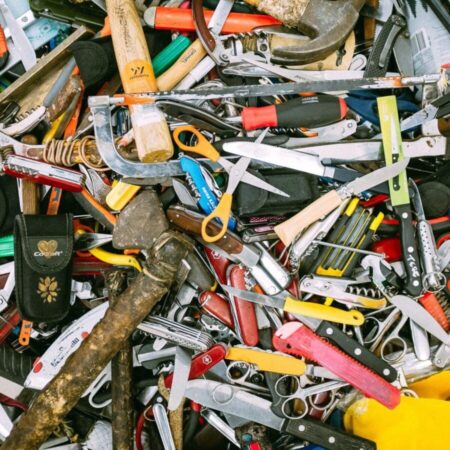Have you ever thought about what your stuff has cost you, in non-monetary terms? How many life hours you’ve actually exchanged to buy the things that are filling your closets, cupboards, attic, garden shed: your entire home?
Time spent buying things, storing things, cleaning things, and moving things around. Losing things, looking for said lost things, even buying duplicates for things you just can’t find. It’s a never-ending cycle. That’s time you can never get back: time you could have spent doing something you love, or spent with people you love.
If you find yourself saying you’re short of time, look at how much of it you spend on your stuff and see if there could be a message in there for you.
Clutter Is A Choice
At the end of the day, clutter is a choice. You’re choosing to buy things, whether you need them or not. Is browsing the shops at the weekend your idea of fun? If yes, that’s great – providing you really enjoy it and aren’t using shopping to fill an empty void in your life.
Many people shop emotionally, as I’m sure you’re aware. They use it as a prop: something to make them feel better. How many times have you heard someone say (or possibly heard yourself saying it) that they have nothing to wear? Yet if you look in their/your wardrobe, there are many items hanging there with their price tags still intact.
If you’re using shopping to fill a void, you may not be aware of what that void is. It could be loneliness, or perhaps it began following a traumatic life event. Whatever the cause, it’s imperative – if you want to move forward – that you seek professional help. However, don’t be embarrassed about it because it’s very common.
Clutter Affects Us All
Whether we believe it or not, our clutter has an effect on our minds. This can be negative or positive, depending upon personal circumstances, but if the effect of your clutter is negative, getting rid of it has to become a priority.
Recommended reading
In their guest blog post* article, Buy This Thing, the Minimalists (Joshua Fields Millburn and Ryan Nicodemus) delve into buying for emotional reasons. It’s definitely worth a read, if you’re looking to break your own cycle of buying unnecessary stuff.
*Article written by Colin Wright – I’ve linked to his instagram page if you’d like to check him out.
Gill


One thought on “How Many Life Hours Has Your Stuff Cost You?”